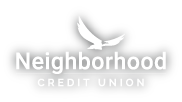April is Financial Literacy Month
Updated March 18, 2024
Published April 1, 2021
Since 2020, everyone worldwide has been feeling an increase of the squeeze on their wallets. In 2023, it was reported that a whopping 78% of Americans were saying they're scraping by from paycheck to paycheck and almost 30% of Americans have more credit card debt than cash saved for emergencies! And get this, in a survey from December 2023, over 45%of Americans admitted they couldn't handle a $1,000 unexpected expense. It's clear we need to step up our game in understanding and managing our finances to turn this ship around, and that's why Financial Literacy Month is so important!
Stay tuned for upcoming webinars in April!
April is Financial Literacy Month
April has been recognized in the United States as National Financial Literacy Month. It is an ongoing effort to highlight the importance of financial literacy and teach Americans how to establish and maintain healthy financial habits.
The National Endowment for Financial Education started Youth Financial Literacy Day in 2000 and shifted ownership to the Jump$tart Coalition so that the event would not promote a singular organization, but focus on financial literacy as a whole. After taking it over, JumpStart Coalition and partners turned the day dedicated to financial literacy into a month.
In 2003, the United States Senate officially named April as Financial Literacy for Youth Month. The following year the Senate passed Resolution 316 that named April as National Financial Literacy Month. Since then, April has been dedicated by hundreds of thousands as a month to promoted financial health to all Americans.
What is Financial Literacy?
To be financially literate one has an understanding of how to maintain and manage budgeting, 401(k), emergency cost, and debt. According to the National Financial Educators Council, the definition of Financial Literacy is:
“Possessing the skills and knowledge on financial matters to confidently take effective action that best fulfills an individual’s personal, family and global community goals.”
Financial literacy will open doors of opportunity for all who gain the skills and knowledge needed.
Financial Literacy at Neighborhood Credit Union
Money Management
To help you effectively manage your personal finances, Neighborhood Credit Union offers our members Money Management. Found within Online Banking and our MyNCU Mobile app, Money Management allows you to connect and view your internal and external accounts, investments, car loans, mortgages, and more. Here are a few things you can expect to see when using Money Management:
- Access your and external account types like checking, savings, and credit cards. You can see all your finances in one place.
- View spending trends over time. It displays up to 12 months of spending by category, along with overall income. This comparison can help a user quickly determine if they are living within their means.
- The Debts tab is a powerful tool that allows you to see all of your debts in one place, create an expedited payoff plan, and calculate the time and money to be saved by using the snowball method.
- A categorized easy to follow list of your of your transactions to help you understand your historical spending and predict future spending. It allows you to easily identify and add recurring bills and payments, as well as one-time or annual payments such as property tax. It helps you see the impact of upcoming payments and plan ahead.
- Notifications can help you stay on track by keeping you notified of important events in your finances.
GreenPath Financial Wellness
We are proud partners of the nonprofit, GreenPath Financial Wellness. Their mission is to help you reach your financial dreams, whether it be buying a home, going back to school, or ensuring your financial security in unexpected times like we are experiencing now. GreenPath offers all the resources and counseling you need to achieve your financial confidence.
Another part of financial literacy is choosing the best financial institutions for your needs, and that includes understanding if and how your money is federally insured, whether by the NCUA at a credit union or the FDIC at a bank.
Finally, we provide free financial literacy classes around the community throughout the year. Covering topics from credit scores to retirement. You can find most of our events with dates and class details on our Facebook page.
Credit Score
Closing Remarks
It is vitally important to us as a credit union that our members and those within our community are confident with the financial decisions they make every day. Join us this April as we share financial literacy facts all month long on Twitter and keep up with our content regularly updated on our website. Together we can change the conversation on financial literacy.



